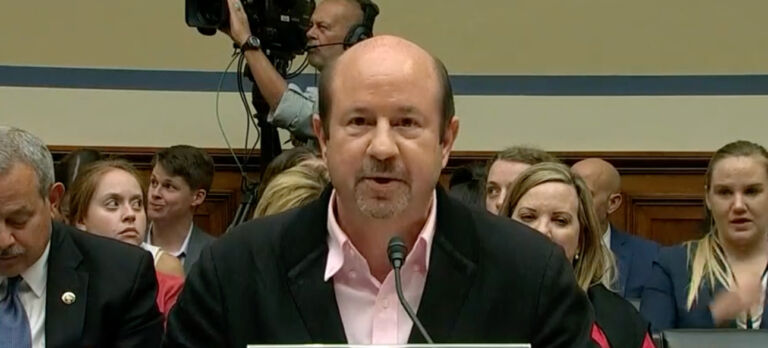John Trump’s April 7 Carolina Journal exclusive report details how a local pastor’s idea of serving his congregation on Easter Sunday while upholding Social Distancing precepts nevertheless got nixed by Wake County:
[Plymouth Church pastor Dr. Chris] Partin had a simple idea to celebrate the most holy week for Christians, one that kept people 10 feet apart and seemingly put no one at risk. Sort of a passion play, sans costumes and theatrics. Worshippers would stay in their cars, and church staff — again, spread out in the parking lot — would try to relay a bit of normalcy. …
“We were going to have different stations, with staff members, like our musician was going to be playing a keyboard outside at one station,” Partin told Carolina Journal.
“And then you drive up to the next one. And again, we would be at least 10 feet away from everybody and my wife and I would be there and we would read part of the Easter story and wave and say ‘hey’ to everybody. … My children’s minister would be there, and was going to have balloons and posters and lots of things, signs saying how much we miss you and all that … .”
But Wake County turned this idea down:
A determination has been made that drive-in/drive-through church services are PROHIBITED and are NOT ALLOWED pursuant to Section 7 and Section 10(p) of the current Proclamation of Emergency Restrictions signed by the Chairman of the Wake County Board of Commissioners on March 26, 2020.
This is flat wrong and unconstitutional. Wake County’s determination fails in many ways.
First, it’s a clear violation of people’s religious freedoms. Those are the very first rights secured from government usurpation in the Bill of Rights.
I like how my colleague Jon Guze, director of legal studies here, put it to Carolina Journal:
In the first place, the county attorney’s statement that religious services do not qualify as essential under the order simply can’t fly. If the exercise of religion is sufficiently important to merit a specifically enumerated constitutional right, it must certainly be important enough to be classified as an essential activity under any emergency order. Either the county attorney is misinterpreting the order, or the order itself is unconstitutional in that regard.
This same reasoning is why Wake County had to back off closing guns and ammunition shops as “nonessential” — because they are essential to upholding Second Amendment rights.
Second, Wake’s order goes well beyond what courts would allow in times of crisis. Guze points out that courts require restrictions on religious freedom to meet the very tough tests of meeting “a compelling government interest” and be “narrowly tailored” to achieve only that interest in “the least restrictive way possible.”
A restriction amid a pandemic is a compelling government interest, but an order that treats a drive-through, stay-in-your-cars Easter Message as essentially no different from a packed, one-room “Let’s All Hug for Jesus” service is not narrowly tailored in the slightest. It fails that test and is an unconstitutional violation of religious freedoms.
As Guze said, “A well-organized drive-in church service would clearly minimize the risk of infection, so any order forbidding such services violates the constitutional right to the free exercise of religion.”
Third, Wake’s order treats churches differently from other businesses. Singling churches out from other business is unconstitutional on its face. It fails even at the “drive-through” level. There’s a greater risk of infection from point-of-sale at a fast-food drive-through than at what Partin proposed for Plymouth Church.
Forbidding drive-in/drive-through church following Social Distancing strictures while allowing drive-through at Burger King et al. is not only facially unconstitutional, it flunks common sense.
Fourth, Wake’s order fails its own order. The county attorney citing the order to the pastor overlooked Section 10(gg), which exempts:
Any business or entities identified as essential by the federal government or the State of North Carolina.
Cooper’s order identified churches (“Religious facilities, entities, groups, gatherings, including funerals”) as essential. Cooper’s order also allowed “Travel to and from a place of worship” as well as all functions of “religious entities” subject to the limitations of “mass gatherings” of 10 or more people, which would obviously not apply to people in cars. (It may not even apply to churches, given its Section 3.A.2 that exempts “any COVID-19 Essential Business of Operation as defined in this Executive Order.”)
In short, Wake County has no solid rock to stand on with this order. They should retract this determination immediately.


